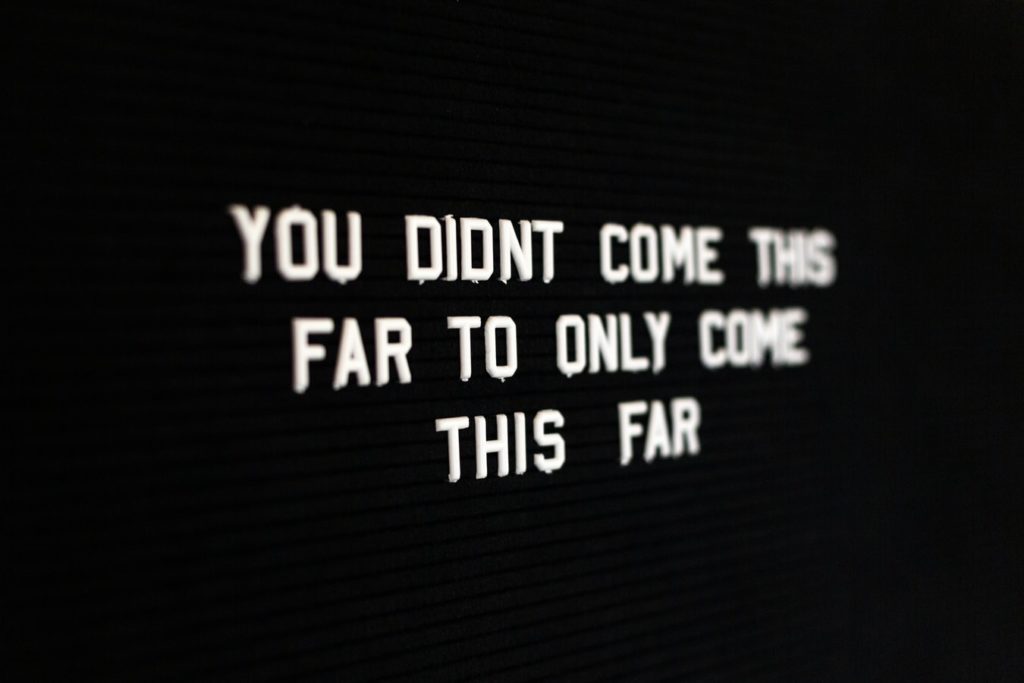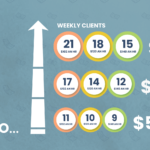A life coach is trained in the basic principles of success, knows how to apply them and teaches clients how to put these principles to use for greater success and happiness in their own lives.
Life coaches may focus on helping their clients identify and transition to a new career field. Coaches may also assist an executive on ways to run a business more profitably and efficiently, help others advance their ambitions, discuss relationship issues or guide someone through the process of weight loss.

Whatever the intended outcome may be, life coaches help clients bring a vision for their lives into focus so they can craft a plan to reach their goals. Helping people become the best they can be is what life coaching is all about.
Just as a world-class athlete needs great coaching to compete at the highest level, life coaches assist CEOs, entrepreneurs, business leaders, executives and business professionals in reaching their full potential. Life coaches work with clients on both professional and personal goals to improve performance, spark passion in relationships, navigate obstacles and discuss just about any issue that stands in the way of a client’s chosen destination.
Life coaching is not therapy. It is not psychoanalysis. Those disciplines look into the client’s past to solve problems in the present. Life coaches deal in the here and now, helping clients achieve success in the future. To be clear, life coaches do not offer a blueprint for success. If only life was that easy.
In truth, as a life coach your role is to listen, reflect, ask challenging questions and work collaboratively with clients to craft a plan that they can follow themselves to reach their dreams. Coaches help people from all walks of life identify the gap between where they are and where they wish to be, then work together to close that gap.
People turn to a life coach when they need confidential assistance powering through the most pressing issues of their lives. When asking for insight from friends isn’t good enough, possibly because there are just some things people don’t want to share with anyone outside a professional and confidential relationship, life coaches can make the difference.

As a life coach you can work with clients one-on-one or in small groups. Sessions can be conducted in-person or through online videoconferencing. These meetings can last anywhere from half an hour to 90 minutes, depending on the client’s needs and your schedule.
Because life coaches are typically self-employed entrepreneurs running their own business, it falls upon them to build a clientele. This takes time, determination and marketing skills. Before offering life coaching services, training and certification will help you prepare for the work – and enhance your professional credibility as you seek out new clients.
In this article you’ll learn:
- How much money can you make as a life coach?
- Required training and certifications
- Professional groups to join
- Employment opportunities for life coaches
- Finding clients
How much money can you make as a Life Coach?
The U.S. Bureau of Labor Statistics (BLS) does not collect data specifically on life coaches, however, it does cite a study conducted in 2016 by the International Coach Federation, which reports that a certified life coach salary range at that time was between $27,019 – $210,933.

The average salary of a life coach in North America is about $61,900.
A Forbes magazine article, “Surprising Six-Figure Jobs,” estimates that 1 in 5 of the 10,000 registered life coaches in the United States make more than $100,000 per year.
As you build your clientele and grow your business, your potential income is limited only by the number of hours in a day and how many of them you wish to work.
There are other benefits. With online video conferencing tools you can work anywhere in the world and accept clients wherever they may be. You’re also in control of your own schedule, unlike working a full-time job for an employer.
Training and Certification
You do not need a degree or any formal license to practice as a life coach. When it comes to government regulation, at most you’ll need a business license, which is a standard requirement for any service that involves taking payments from the public.

Still, if you want to be respected in the field and make top dollar, you’ll want to complete an accredited training program for life coaching. This gives you instant credibility with potential clients while setting your services apart from competitors. Life coaching is a fast-growing field but isn’t regulated by any state or federal agency. There is no licensing requirement.
Anyone who wants to be a life coach can begin at any time, but certification shows people you have specific training and are serious about the career. It also makes good business sense to promote yourself as a certified trainer. Would you rather work with a certified life coach or just anyone who happens to advertise coaching services?
There are several certification levels available in the life coaching profession, ranging from “associate” to “master coach.” One of the most respected certification organizations in the field is the International Coach Federation. To become certified through the ICF, you must complete an approved training program, then apply for their certification. Current basic fees to review an application for ICF certification are $330 for non-members and $100 for ICF members.
Each certification level requires a minimum number of training hours and coaching experience. To become an Associate Certified Coach, you’ll need to complete 60 hours of training along with 100 hours of real-world experience. To achieve Master Certified Coach status you’ll need 2,500 hours of coaching after 200 hours of training.

Your training will involve coursework, study and real-world experience. Other requirements for certification include an examination and reference letters from mentors in the life coaching field.
Courses leading to certification include:
- Communicating with clients
- Establishing good relationships
- Setting boundaries and limits
- Maintaining strong convictions and making good decisions
- Life coaching professionalism and ethics
To earn your certificate you must log paid hours with clients. These can be either individuals, groups, or people within an organization. Continuing education credits are also required to maintain certification.
Here is an extensive listing of dozens of training programs for you to review as you decide the right school for your needs.
In terms of background, some life coaches begin their careers as social workers, teachers or consultants. Previous work in human resources management offers another good transition point into life coaching.

In addition to formal training, you can study additional subjects to help you as a life coach, such as workshops in communication skills, goal setting skills, and how to build client-coach relationships. Networking with other life coaches can also help you identify areas you need to strengthen.
Generally, coaches will be highly knowledgeable in these areas:
- Psychological principles to understand differences in behavior and human motivation.
- Communication – so you are able to interact with people from all walks of life.
- Teaching techniques to coach, develop and demonstrate various ideas and solutions.
- Building positive attitudes and self-assurance. Coaches must be confident in themselves in order to succeed in helping others boost their own confidence.
- Familiarity with the work of professionals you will be coaching. While no one can master every subject, having a working knowledge of the client’s career will help you help them. For instance, if you are coaching primarily business executives, a knowledge of business matters will be useful.
- Reflection Theories – This involves the ability to conceptualize and evaluate thoughts so they can be formed into actionable goals.
- Writing skill – a great coach is able to document all interactions and recommendations for clients, including skill assessments. Whether you take notes, make audio recordings of your sessions with clients, or both, you’ll need to be able to transcribe that information into a recap of the session and extract action items that can lead to progress on the client-coach journey.

Other skills and abilities that will be helpful to you as a life coach:
- Organizational skills – As a life coach you will see or talk to several clients during the day, and staying organized is imperative.
- Motivation skills – The ability to motivate your clients to make a change, or to draw out a person’s potential is vital to your career as a life coach.
- Flexibility – The ability to be flexible allows for personal transition on an individual basis.
- Empathy – Coaching makes no assumptions. You do not make judgments or issue instructions.
- Self-confidence – Because a life coach inspires people to make changes in areas of their personal and professional life, being confident in your ability to coach is crucial.
- Positive Attitude – Being positive in your approach, tone, and attitude.
- Creativity – A life coach must be able to come up with new and exciting ideas for their clients, and being creative is necessary to attain successful results.
Professional Groups to Join
When you join a professional organization for life coaches you’re showing potential clients that you are devoted to your career. Just as important, professional affiliations open up new doors of opportunity and information. You’ll get to network with other professionals, learn from them and exchange ideas. Another objective of any life coaching association is to connect people who want coaching with professional life coaches. Associations help coaches become more organized, develop management skills, and provide structure, support and encouragement, while offering a forum to discuss challenges and changes in the profession that may be causing stress or anxiety.
This extensive list of professional associations for life coaches can also help you get started.

Certification programs for life coaches typically include continuing education credits to maintain accreditation. If you’re joining a professional association this is another benefit to look for. This can include regular webinars, distance learning and downloadable education materials.
Here are some of the best-known and most respected professional organizations catering to life coaches:
This organization describes its philosophy of coaching as “a professional relationship that helps people break through their limitations to achieve extraordinary results in their lives, careers, businesses or organizations. The process of coaching encourages clients to deepen their learning, improve their performance, and enhance their quality of life through self-discovery and self-empowerment. In each meeting, the client chooses the focus of conversation, while the coach listens and contributes with observations and questions. This interaction creates clarity and moves the client into action.”
Association of Corporate Executive Coaches
Their mission is to elevate corporate executive coaching in being recognized as a critical profession, with coaches “seen as a transformation catalysis for the 21st century and beyond creating organizations of the future.” Members strive to become essential partners with corporate executives, helping them to drive positive change and innovation.
Visit the website to complete a membership application. The process takes approximately 4 to 6 weeks for Master Level Membership and 1 to 2 weeks for Professional Membership, including an interview.
International Association of Professional Life Coaches
This association is committed to supporting life coaches with help in learning and professional development. Membership is $47 a month. Benefits include business and marketing solutions.

The International Coaching Federation has more than 30,000 members. Founder Thomas Leonard, who developed the modern concept of life coaching, was the first to create a code of ethics and credentialing for the profession.
The Association for Coaching promotes high standards and best practices in the industry. Member benefits include business development services, events, and educational resources. Their goal is to inspire coaching excellence, to advance the profession and make a difference to individuals, organizations and society.
The International Authority for Professional Coaching and Mentoring has a broad membership of coaches, mentors and coach/mentor trainers.
The Christian Coaching Network is a faith-based association for those who want to include a Christian focus in their coaching.
The International Association of Coaching advocates that coach training or graduating from a program should be part of broader life experiences that better qualify individuals to coach.

Employment
Most life coaches are self-employed entrepreneurs who manage their own practice, conduct all marketing and promotion and work directly with the clients who retain their services. As your business grows, you may consider employing an assistant or secretary who can handle the back-office aspects of running a business. Be sure to visit PocketSuite, where you can gain access to valuable scheduling and billing tools that will make your professional life so much easier.
If you prefer not to operate independently and instead seek full-time employment, your best bet will be to contact the human resources departments at major corporations that have the budget and workforce to benefit from an in-house life coach.
Finding Clients
By now, the life of a self-employed life coach probably sounds pretty enticing. Set your own hours, work anywhere and decide who you want to work with. Excellent. All are terrific perks of the profession. To sustain your career, you’ll need clients. A steady stream of clients, in truth, because some people will move on after they’ve achieved success through your services.

Business cards and a basic website should be the fundamental tools of your marketing kit as a life coach.
Your website must be attractively designed, with a clear explanation of your services and value proposition. Testimonials from happy clients are helpful. It’s a good idea to use only their initials or a first name and last initial to maintain privacy and confidentiality, unless you get written permission to use their full name. Your business location (if you coach from an office, as opposed to meeting clients in a coffee shop) as well as contact information should be clearly visible at the top of every page on your website. Search engines scan this information to match your website geographically with people searching for a life coach.
In addition to your business website, the next thing to do is create an Instagram account to showcase your coaching business. Instagram is the #1 online venue for professionals to promote their work. It’s a free marketing tool that’s always working on your behalf. You may not be able to post photos of actual clients, so get creative with ideas for visuals that can go on your Instagram page. Photos of the sun rising over an ocean or mountain, for example, convey a sense of change, of a new day.

Now set up a Facebook page for your coaching business. This is a great way to build a following and keep people up-to-date on your offerings. And it’s free. Advertising on Facebook can be a quick way to empty your bank account if you’re not experienced in creating targeted ads, so launch your coaching page and build a following before diving in with paid advertising on this platform.
Be sure to create a Google My Business page, where you can add hours of operation, photos and an interactive map of your location. On this page clients will also be able to post reviews of your services and their experience working with you. Be sure to ask them. A Google page is also free.
Setting up a page on each site takes less than an hour.
Other strategies for attracting new business:
- Create a referral program with discounts for clients who recommend your coaching to their friends.
- Ask clients to review your coaching services online. According to a recent survey, 90% of people say their buying decisions are influenced by positive online reviews.
If you enjoyed this article, check out some more great PocketSuite.io content that can help you grow your career as a life coach. Here’s a great place to start.PocketSuite has thousands of business owners who all started where you are right now. Our community is always happy to help you ramp up, grow your client base, and achieve your income goals, both within the PocketSuite app and as part of our exclusive Facebook Community Group. PocketSuite’s vision is for any professional to be able to work for themselves and make a great living. It starts here. It starts with you. It starts today. Let’s get started, download PocketSuite now! Feel free to reach out with any questions (we’d love to hear from you)! Text us @ (415) 841-2300.





